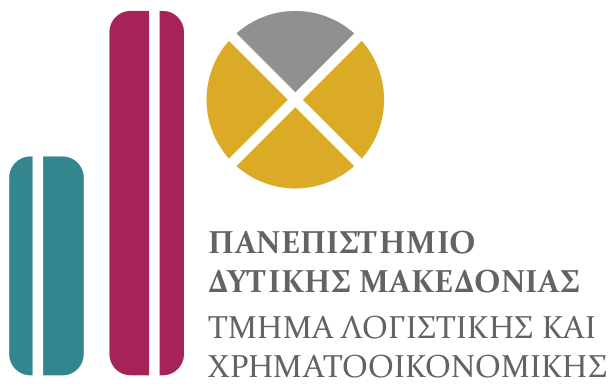The Department of Accounting and Finance has been established after the merger of two separate Departments, the Department of Financial Applications and the Department of Accounting, both contributing with their valuable experience in teaching and research.
The course programme caters for both general knowledge of Economics and specialisation in Accounting and Finance, with special emphasis on the implementation of the acquired theoretical knowledge.
To achieve undergraduate study objectives, courses in Accounting and Finance include:
Core modules (Mathematics, Statistics I, Statistics II, and Financial Mathematics), which aim to enhance students’ background knowledge to enable them to comprehend:
- Econometrics (Econometrics I Econometrics II, Financial Econometrics), which are essential to carrying out relevant research, and which, in conjunction with Research Methodology, provides for the necessary theoretical background for writing the Thesis.
- Finance, as well as financial analyses and the relevant theories, all of which require good knowledge of mathematics and statistics.
- Quantitative methods applied in business administration and economics.
- Business Administration, Economics and Corporate law, which are fundamental to understanding the general business environment and decision-making processes. Emphasis is also placed on medium-sized businesses as they are the backbone of the Greek economy, and social entrepreneurship, as social economy is an emerging European trend, with good career prospects.
- the overall Greek and international economic environment and relationships (Greek economy, European Union, Business Ethics & Corporate Social Responsibility, International Economic Organizations & Institutions, European Economic Integration), with a view to strengthening students’ scientific and creative thinking helping them to understand the global economic landscape.
Specialisation Courses, which cater for contemporary and innovative education and meet high international university standards.
Overall, undergraduate study includes courses that build background fundamental knowledge of accounting and finance, and elaborate on more modern discipline aspects, such as auditing and internal auditing, international accounting standards and risk management.
Upon successful completion of the courses graduates will:
- have the basic theoretical and practical knowledge in the study fields of Accounting and Finance
- be able to manage bookkeeping and accounting organisation procedures of all types according to the current legislation, the Greek General Chart of Accounts and the International Accounting Standards.
- be able to prepare and analyze balance sheets to compile budgets for businesses and organisations
- be able to comprehend the actual financial situation of a company
- be able to apply the principles and methods of costing and valuation as well as financing and managing investments
- be able to perform financial analyses as well as to design and develop financial services and products
- be aware of the current computer applications in Accounting and Finance



